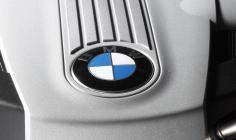
Jonathan Minter speaks to Mike Dennett, CEO of BMW FS UK, about what an international career has taught him, how finance is a key part of BMW’s newly launched online platform, and how strong regulation is the new norm
Having joined BMW in 1999 after a decade at PwC, Mike Dennett became chief executive officer at BMW Group Financial Services (BMW FS) UK in 2015 following a number of upward moves for the German manufacturer.
His first role was head of accounting at BMW FS UK, followed by three years as head of controlling and accounting at BMW Bank in Germany, three years at BMW Group (as opposed to FS) in the UK as head of finance, three years as chief financial officer at BMW FS South Africa, and four years as chief executive officer at BMW FS Belgium. In 2014, Dennett became head of BMW FS, Northern Europe, giving him responsibility for BMW’s finance house in Sweden, Denmark, Norway, Finland and the Baltic states. This position was to last for less than a year when, in April, he had the opportunity to return to BMW FS UK, this time in his current role as chief executive. Motor Finance caught up with Dennett to find out just how much the UK industry has changed during his time away, what lessons he has learned from his time abroad, and to find out more about BMW’s new online webstore.
What have you learned abroad which you’ll be able to use here?
There were two key things I learned in all of these travels. First and foremost, customers have differing demands. The customer should be the driver for business success. At the end of the day, even in a market like Belgium, which seems quite small, it has some quite diverse cultural differences in the market. We need to understand what those customer differences are, what their expectations are, and be able to address those.
The second key lesson is the diversity of culture in the workforce, and the associates you have working in the business. Regardless of mostly being in the Western European field, there are different cultures and ways of doing things, and as a leader of business, you have to recognise that and adapt to that. That is an important factor in the cultural space, both from a customer and an associate perspective.
How well do you really know your competitors?
Access the most comprehensive Company Profiles on the market, powered by GlobalData. Save hours of research. Gain competitive edge.

Thank you!
Your download email will arrive shortly
Not ready to buy yet? Download a free sample
We are confident about the unique quality of our Company Profiles. However, we want you to make the most beneficial decision for your business, so we offer a free sample that you can download by submitting the below form
By GlobalDataDid you encounter Preston Rogers, current general manager, group brands, of BMW FS UK, when you were in South Africa?
I did. When I was over there, he was over here for most of it though!
Preston had already spent some time working in our Alphera business in sales and marketing support at pretty much the same time I was in South Africa as CFO.
He came back to become head of sales and marketing for BMW FS South Africa about two or three months before I left. So we only worked together for a short period, but it is no coincidence that I was involved in bringing him back to the UK.
How different is the market in the UK now, compared to when you left it?
It’s very different. Having been away from UK financial services for approximately 14 years, I would say the level of sophistication has improved significantly.
The underlying business is similar. Our role as a captive is multiple: we have our own commercial profitability targets and also to help the group in supporting the sale of new and used vehicles and helping the retail network, but also fundamentally to manage the customer interface.
Our contacts with customers are repeated and ongoing during the contract life cycle, rather than at the point of sale, or point of return of a vehicle.
So one thing that has really advanced in the time I was away is focusing on the customer – the customer journey and customer relationships. That level of sophistication has improved dramatically.
Also it is noticeable how the market has grown overall in terms of new vehicles being sold. It’s much bigger than Belgium, the Nordics, or SA.
Finally, of course, regulation has significantly changed. In Germany, we were operating as a regulated bank. Regulation is not new to me.
In the Nordics as well, we had a branch in Norway, where we were heavily regulated with a similar approach to regulation as we have in the UK. Belgium was less regulated. So it was interesting to come back.
I came back in the middle of the role out of the FCA and us seeking approval from the FCA as an authorised credit provider.
Towards the end of 2014 BMW revealed its remuneration policy. How has that gone down over the first year?
I’d have to say we’re very pleased with how it’s gone down. 2015 has been an interesting year in terms of ourselves and many of our counterparts entering into the year not really knowing what was going to happen.
We were operating under interim authorisation – so waiting for full authorisation to come through – and our business plan included the models we’re about to talk about.
Our approach to replacing the retailer rewards model actually started two to three years before. We’d been looking at how we remunerate out retailer network. We’d been looking at the fact that different retailer groups had very different plans, and we’d received feedback that a level playing field would be more appropriate. So we’d already started on that journey. When the regulation came in, it dovetailed into our thinking and planning quite well.
The approach of a level playing field, and looking for the customer to be receiving the same offer, regardless of where they’re located in the country, just made sense to us. The regulation helped push us in that direction a little bit further.
Could you give me a high-level overview of the policy?
Essentially what I can say is that we’ve developed a model which demonstrates an honest attempt to embrace the principled approach embodied by the FCA.
We’ve eliminated the complicated landscape of individual dealer agreements, and are moving towards a common approach to all.
We’ve also eliminated volume bonuses, so there are no bonuses based on volume, and we provide a remuneration which is both quantitative and qualitative.
How do you think the industry has taken to this theme?
Locally, we’re talking about regulation as the new norm. When there’s a big change, it’s obviously something we’ve got to adapt to.
But regulation is the new normal, and is therefore something we have to embrace. The FLA does a really good job in speaking on behalf of the industry, on taking the feedback and the needs of the industry into consideration, and they’re in a great position to talk as an almost anonymous speaker on behalf of the members of the FLA, to get the message across to the FCA about our industry needs.
The FLA is working hard at educating the FCA on how our business models work. For example, point of sale is mainly within the dealer network, and not with the financial services provider, and that is not the case with some other areas of the industry.
Speaking of point of sale, BMW launched its new webstore, which allows customers to buy finance online, correct?
We call it BMW Retail Online. It provides a customer with the opportunity in the comfort of their own home to go online and configure a vehicle.
They could do this already, but now they can take it through the next steps. Those include the provision to apply for finance once the car has been configured. It also provides the opportunity to interact with a retailer of their choice – either a local retailer by text chat or over the phone. And it integrates the retail network in terms of delivery and handover, if and when that vehicle is purchased online with or without finance.
Following configuration of their desired vehicle the customer can complete applying for finance online, including gaining an automated approval for their finance application, and can pay a deposit online. Customers can even trade-in their existing vehicle as part of the transaction.
With most vehicles being built to order, we prefer to ask our retail channel to engage with a face-to-face handover process with each customer in order to ensure complete customer satisfaction with the vehicle they have ordered.
The finance piece is integral, if you look at the way the industry is moving. The sale of new cars is very much supported by finance and monthly payments. Having that integrated into the solutions for retail online makes absolute sense.
I think the way customer behaviour has been moving in the past decade, especially over the past four to five years, is to do a lot more online. Customers are doing a lot of their research for new vehicles online.
Ten years ago you were averaging something like four visits to a retailer before a purchase was made; now it’s just over one visit. So there’s a lot more customer research and comparison being done at home online.
The natural progression is to take it one step further. We’re looking at approximately 40% of customers saying they would consider buying their car online. But until now it’s not been possible.
Given the webstore, where buyers can apply for finance, compile the car, and do most of the deal in a central store, what does this say about the future of dealers?
The retailer is still an absolutely integral part of the process. It’s about the customer experience, as well as buying or selling a vehicle.
Allowing a retailer to access the customers doing their business online actually augments and enhances their business opportunity with the customer. And I think that’s really important – that the retailer is still the face of the brand to the customer, and is able to interact and give advice. So they’re still very integrated in the whole process.
You seem at the forefront of online websites. Why has it taken this long for the industry to develop these online stores?
It’s very complicated. As an industry, innovation in the vehicle is significant and key in terms of competitive advantage, and that’s something we pride ourselves on. But reaching out to a customer via online has just been a bit slower to gain traction. I can’t really explain why it’s taken as long as it has.
If you look at the customer experience, customers are not looking for a replacement of old models with new. They’re looking for a multiple of different access points to do their business, and do their shopping these days. So if you take the typical supermarket, you can still go into a store, you can click and collect, you can buy online and have delivery. But customers aren’t looking for all one, and none of the others; they look for the various options. That’s what we’re trying to provide here: we’re trying to provide the options for the customer groups that we’re trying to reach out to.
Customer behaviour is changing, and it’s essential that the trust of the customer is earned and maintained. Therefore it’s absolutely important that when we launch something like this, we’re confident that it will maintain that trust.
Do you have anything big to mention for 2016?
From a BMW FS perspective, we continue to look at market trends, and what the market is doing. We continue to look at our own financial service product portfolio, to see whether that is suitable and what the customers are requesting.
I wouldn’t want to disclose what we’ve got planned this year so openly, but I would say we stay tuned with what’s happened in the market, and try to plan accordingly.
In terms of the general market, what do you expect to see?
I’m expecting to see some form of stabilisation. The SMMT would be the best place to start for projections, but I’m not expecting any radical changes in terms of new car and used car volumes.
We’re sitting with a steady growth strategy, and nothing is particularly radical.
The FCA is having to work really hard to learn about consumer credit. Do you get the sense it is getting there now in terms of knowledge?
Our discussions through and with the FLA have shown indications that it is starting to understand the industry more fully.
The FCA has clearly stated it will take a risk-based approach and start to address the areas it considers of higher risk first.
It is taking the time to understand our specific part of the industry. It will take some further time through reviews and discussions to get there fully, but to be fair to the FCA, if you consider what it’s taken on and where it’s had to start, it’s hardly surprising that there’s still some knowledge-gathering to take place.
The number of applications has been surprising, and the number of new applicants has also been surprising. So I think the initial stage of approving business plans has taken a bit longer than first anticipated.
Have customer expectations changed aside from the digital side of things?
It’s difficult to say, but the answer has to be yes. With a product as emotional as a vehicle, there’s nothing that replaces the touch and the feel, the sight and the test drive.
I think the test drive is an important part of the process of the customer getting what they want. The in-dealer process is still a very important part, and I don’t think will be replaced fully by digital avenues.
However, I think it’s really important that customers can gain knowledge and information, and try to experience similar emotions online because we are all so online these days.
It’s important we continue to invest online from both a vehicle perspective and a financial service perspective.







